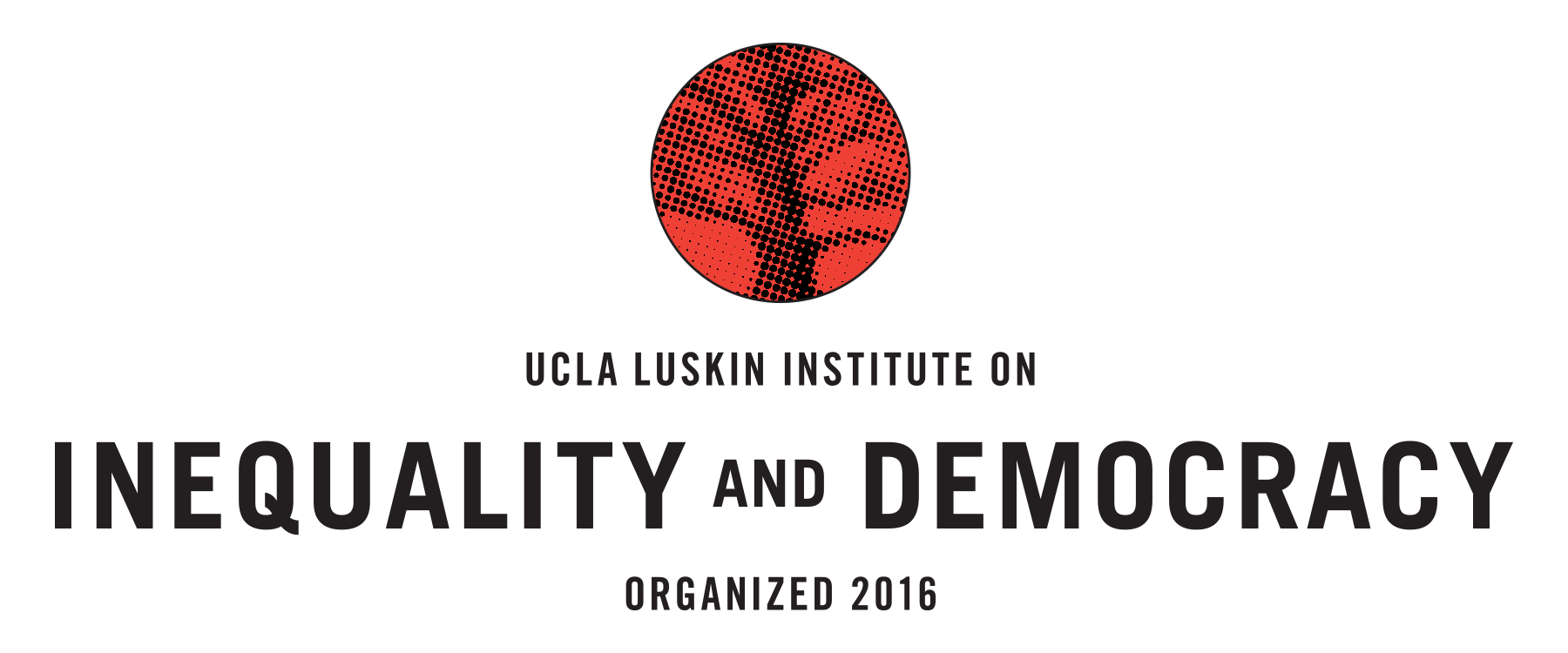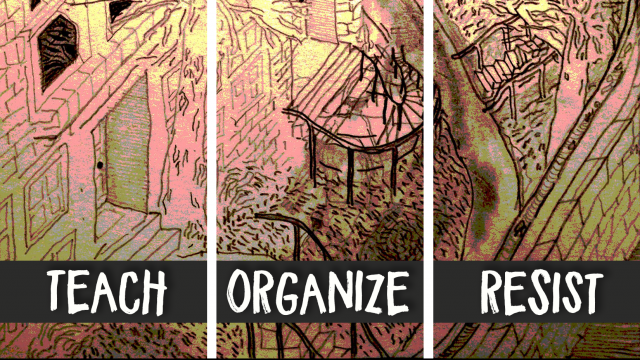Research and Resistance: Reflections since the J18 events
By Rachel Wells, UCLA Luskin doctoral student
Before attending the UCLA Luskin Institute on Inequality and Democracy’s J18 events, a day focused on the ideas of Teach.Organize.Resist. two days before the presidential inauguration, I read a post on the role of social work in a Trump administration (Hayes, Karpman, & Miller, 2016). Drawing from the NASW code of ethics, this article helped me reflect on our roles as social workers and of the social work profession in this (extended) moment. I identify with the social work profession, but as a doctoral student, I am entering a newer role as a social work researcher. As events unfold, both the actions that harm communities and the language that targets and demonizes populations, how is this resistance part of my work as a social work researcher? While I currently have more questions than answers, I am reflecting on how the themes of Teach.Organize.Resist. and the inspiration from J18 events should be part of social work research.
I have chosen to locate my doctoral studies in the field of social welfare, a field that is rooted in practice and work with communities and I do this research with a goal of informing practice. I am studying nonprofits and service delivery, but these nonprofits and the communities they work with are facing (and will be facing) new challenges. As my research agenda develops, I am constantly challenged by how I should work with nonprofits during this moment. I am concerned about not only whether research questions are thoughtful and relevant for communities, but I also question how the process of research can be applicable for practice. Differences such as how changes that affect communities can happen faster than research timelines existed before this administration, but this difference in timing seems like a greater challenge for making research relevant in this current administration.
I recognize that I write from a position of privilege as many actions have not affected me directly. I also talk about this time of crisis fully aware that many communities were already facing crises. The narratives that target populations, such as recent comments about how people cannot afford health care because of choices to purchase iPhones and blaming people in poverty for their lack of health care, are not new narratives and have contributed to this current situation. So as I reflect on my role with social work research, this is not a new responsibility. But as social welfare systems could face (and already are facing) significant changes and attacks on populations become even more intense, this is a reminder of the work we need to do and the conversations that should happen both among practitioners and researchers.
While challenges are not new, there are some tough conversations ahead for social welfare systems. What happens as the social contract changes? If researchers want to inform practice, how should research change in this moment? As researchers, can we can challenge a field (and very much ourselves at the same time) to not replicate power differences in this time of crises? A call for advocacy within social work is important but may not be enough, how do we work with the social welfare field to imagine different possibilities? I recognize that I have only addressed these issues at a surface level and I am still learning my role as a researcher. But as I follow-up on the ideas from Teach.Organize.Resist. and think about how a university can be part of the front lines, I hope to continue these conversations around the role of research and not only challenge ourselves in our activism but in our research.




